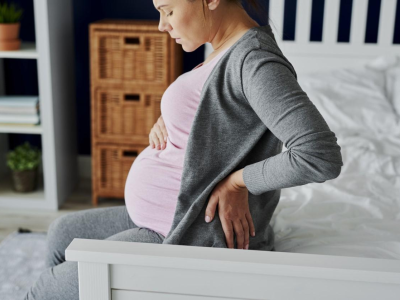COVID-19 vaccines up protection from previous infection against Omicron
Previous non-Omicron SARS-CoV-2 infection was tied to a 44% lower risk of Omicron reinfection and 81% lower odds of related hospitalization, which was further improved by one, two, or three mRNA COVID-19 vaccine doses (86%, 94%, and 97%, respectively), according to a study published late last week in JAMA Network Open.
Canadian researchers conducted a test-negative case-control study of 224,007 infected participants and 472,432 uninfected controls aged 12 years and older tested for COVID-19 in Quebec from Dec 26, 2021, to Mar 12, 2022, before the emergence of the more highly contagious Omicron BA.4 and BA.5 subvariants.
In the respective cohorts, 62.2% and 63.9% of participants were female, 87.4% and 75.5% were aged 18 to 69 years, and 4.2% of infected participants and 6.3% of controls had been previously infected with a non-Omicron strain.
In unvaccinated participants, previous non-Omicron infection was linked to a 44% lower risk of Omicron infection; protection was 66% 3 to 5 months post-infection, falling to 35% at 9 to 11 months and to under 30% thereafter. Severe previous infection conferred the greatest protection.
Among previously infected participants, mRNA COVID-19 vaccination was associated with risk reductions in Omicron infection of 65% after one dose (vs 20% among the unvaccinated), 68% after two doses (vs 42%), and 83% after three doses (vs 73%).
Estimated protection against Omicron-related hospitalization among previously infected participants was 81%, rising to 86% after one vaccine dose, 94% after two doses, and 97% after three doses, with no evidence of waning.
The study authors noted that Omicron is the most highly transmissible and immune-evasive SARS-CoV-2 variant to date, and protection against Omicron infection and hospitalization from a previous infection was comparable to the protection provided by two mRNA vaccine doses.
"In the context of program goals to prevent severe outcomes and preserve health care system capacity, a third mRNA vaccine dose may add limited protection in twice-vaccinated individuals with prior SARS-CoV-2 infection," they concluded.
Oct 14 JAMA Netw Open study
Trauma patients with COVID-19 have more cardiac events, data show
Patients at trauma centers who test positive for COVID-19 have worse outcomes than COVID-negative trauma patients, even when they are asymptomatic, according to study results presented at the Scientific Forum of the American College of Surgeons Clinical Congress.
Trauma patients with COVID-19 have high rates of myocardial infarction and cardiac arrest and more intensive care unit (ICU) admissions and use more hospital resources than uninfected patients.
The study was based on outcomes seen at the LAC+USC Medical Center (Los Angeles) level 1 trauma center during the first 18 months of the pandemic (March 2020 to October 2021). The study authors excluded all COVID-positive trauma patients with symptoms and instead compared outcomes only among asymptomatic positive and negative patients.
A total of 185 asymptomatic COVID-positive patients were matched with 554 COVID-negative patients. The asymptomatic patients had higher rates of myocardial infarction and cardiac arrest (3.2% vs 0.9%), more days requiring mechanical ventilation (3.33 vs 1.49 days), and a longer overall hospital stay (11.41 days vs 7.24 days).
Patients in the ICU with COVID also stayed, on average, a day and a half longer than their negative counterparts (4.92 days vs 3.41 days) and had higher hospital costs ($176,505 vs $107,591).
"This is the one of the first studies to look at the impact of COVID in trauma patients with no clinical or radiological signs of infection, and we demonstrated higher incidence of cardiac events, longer length of stay and increased costs in positive trauma patients compared with a matched population of similar negative patients," said lead author and research fellow Marco Sozzi, MD, in a press release.
"Simply put, you don’t have to have symptoms for the virus to potentially affect your body," he said. "Further studies will need to look at further indicators that may put patients at risk."
Oct 16 American College of Surgeons press release
Avian flu strikes more turkey farms, backyard flocks
Six states reported more avian flu outbreaks in poultry, mostly involving backyard flocks and commercial turkey farms, according to the latest updates from the US Department of Agriculture (USDA) Animal and Plant Health Inspection Service (APHIS).
In the West, California reported an outbreak at a turkey producer in Stanislaus County that houses 54,900 birds, and Utah reported two more outbreaks at commercial turkey operations in Sanpete County, which had 158,700 birds combined. Also, Wyoming reported an outbreak in backyard birds in Fremont County.
Elsewhere, New Jersey reported the virus in backyard birds in Warren County, the state's second outbreak in poultry and its first since the middle of June. Also, Michigan reported an outbreak in a backyard flock in Genesee County, and South Dakota reported two more outbreaks, one at a commercial turkey farm in Beadle County involving 71,400 birds and the other involving a backyard flock in Hamlin County.
Since the Eurasian H5N1 strain was first detected in US poultry in early February, outbreaks spanning 42 states have led to the loss of more than 47.4 million poultry.
USDA APHIS poultry outbreak updates
In international developments, chief veterinary officers from England, Scotland, and Wales today declared an avian flu protection zone across all of Great Britain, which legally requires all bird keepers in the region to follow strict biosecurity measures, the UK's Department for Environment, Food, and Rural Affairs (DEFRA) announced today.
The United Kingdom is experiencing its largest outbreak ever, with 190 confirmed since late October 2021, with more than 30 confirmed since the beginning of this month. East England has been the main hot spot for events involving poultry and captive birds, but outbreaks have been reported in the southwest and in wild birds at multiple locations across Great Britain.
Oct 17 DEFRA statement











